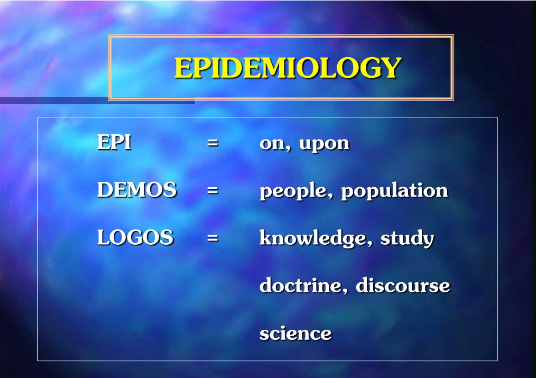What is Epidemiology? Its Causes , Effects and Treatment
Hello! I am here discussing Epidemiology in this post. Epidemiology is a discipline within a systematic research system. Dynamics is based on data, based on a systematic and unbiased approach to data collection, analysis, and interpretation.

Basic epidemiological methods usually involve careful observations and the use of appropriate comparison groups to assess whether the observations differ from the observations, e.g. B. the number of cases of infections in a given area at a given time. However, epidemiology uses other scientific disciplines such as biostatistics and computer science, as well as biology, economics, and social and behavioral sciences.
What is Epidemiology?
Epidemiology is a branch of medicine that examines all the factors that determine the presence or absence of disease and complications. Epidemiological research helps us understand how many people are infected or dying, how these numbers are changing, and how this affects our society and economy.
The growth of human communication is an area of reward and competition. Much of the information gathered by the epidemiologists came from self-reports of responses from study participants. For example, data can be collected on the number of people who answer ‘yes’ to the question of whether someone in the household has a hearing problem.

Everyone who gave this answer could explain the “hearing problem” in a different way. This means that the results of this study could be very different from the results of a study where everyone in the family has the actual audiometer test.
In addition, many epidemiological forecasts attempt to determine how many people have been affected by the disease over time. The definition of the disease also tends to change over time, making predictions difficult. Even scientists working in the same field at the same time may not agree on the best way to measure or identify a particular disease.
Keywords to know about this area:
Infections: The number of new cases of any disease or condition in a population over a given period of time.
Prevalence: The number of cases in a population at any given time.
Cost of illness: Many reports use medical expenses (i.e. money spent) as medical expenses. Of course, the cost of death also takes into account more difficult-to-measure factors, such as service-related costs, education costs, and costs of ancillary services needed by the patient, health problems, and parents. Running problems. (Adapted from the Department of Environmental Health Insurance form)

The severity of the disease: the significance of the disease to society in addition to the cost of the associated treatment. It is measured in years of life lost to health, or in total life expectancy adjusted for people with disabilities and the difference in life expectancy (DALY).
DALY (Lifetime Disability Assessment): A summary of the population’s health status. DALY stands for one year of healthy life lost and is used to estimate the difference between the health of the current population and an ideal situation in which the life of the entire population is lost.
Also Read:
- HIPAA – Health Insurance Portability and Accountability
- Diabetic diet, A Healthy Diet Planning Control of Diabetics
- Egg Calories Nutrition, Health Facts and its Importance
Applications of Epidemiology
Epidemiology is not just the “study” of population health; This includes applying research-based knowledge to community practices. Like medical research, the practice of epidemiology is both a science and an art. A physician combines a physician’s (scientific) knowledge with the patient’s experience, clinical judgment, and understanding to make the correct diagnosis and provide the correct treatment for the patient. Descriptive and analytical epidemiology. We offer health interventions.
Conclusion
Epidemiology is the study (scientific, systematic, data-driven) of the distribution (frequency, pattern) and determinants (causes, risk factors) of health-related conditions and events (not just diseases) in a particular population (scientific, systematic Patients have a community (people together) and the application of this research to health problems under their control (because epidemiology is a field of public health).